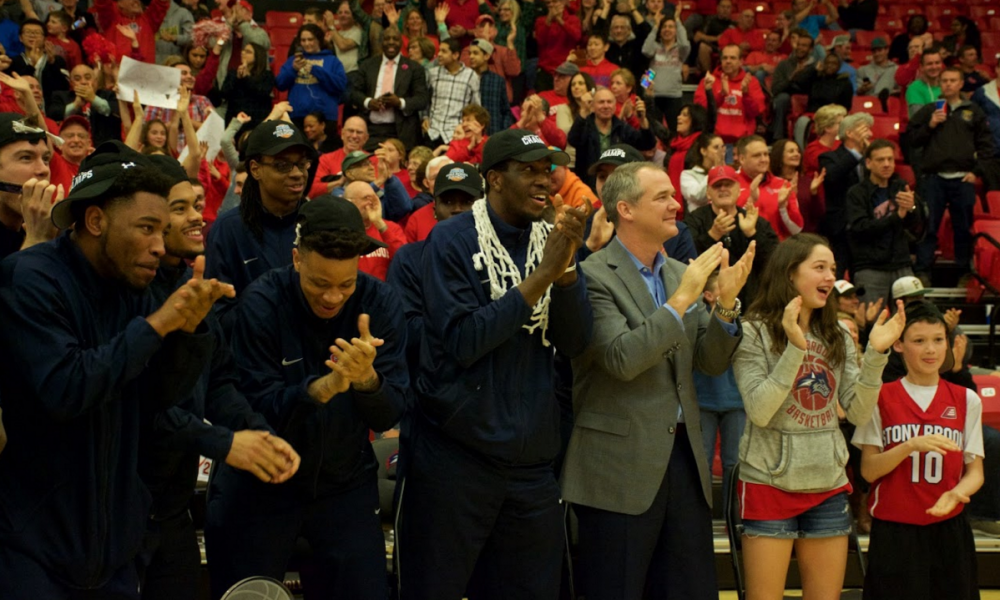“Alex, a 23-year-old Sunday school teacher and babysitter, was trembling with excitement the day she told her Twitter followers that she had converted to Islam. For months, she had been growing closer to a new group of friends online — the most attentive she had ever had — who were teaching her what it meant to be a Muslim.”
- ISIS and the Lonely Young American, NYTimes, June 27 2015.
This excerpt is taken from an investigative piece that explores the depths of ISIS’s roots in Western society.
The author, Rukmini Callimachi, took to the stage Tuesday night as the speaker of the School of Journalism’s My Life As series, which invites famous journalists around to country to talk about their work. Recounting her coverage of war zones, she said,“I had heard the term ‘raped’ and ‘killed’ more times than I can count. While I had heard those words, I really had no idea just how horrific the crime was that they were depicting until I found myself here in a jungle, in Ivory Coast.”
Callimachi started her speech the same way she writes most of her pieces: with a vivid description of her adventures in a war zone with an AP photographer.
“I was presented with a dilemma that journalists frequently face when they are documenting human rights abuses in an inaccessible war zone,” she said, explaining her feelings when she went out to interview a survivor and verify the incident. “I hadn’t seen it with my own eyes so could not be sure of the facts.”
Callimachi praised Marie Colvin, the intrepid international correspondent who died covering the Syrian civil war, and then rewinded back to when she started her career as a journalist.
“I came into the profession quite late, when I was 27 years old.”
Callimachi graduated from Dartmouth and Oxford with a degree in Modernist Literature, and later, studied Theoretical Linguistics.
“It took me most of my 20s to figure out what I really wanted to do,” she said, because none of her universities had a journalism program. She really wanted to be a foreign correspondent.
At 27, she bought a one-way ticket to New Delhi and went from one editor to the next looking for work. Six months passed without a job before Callimachi got her first break, when her piece about the 2001 New Delhi earthquake appeared on the cover of Time magazine. That was not enough, however, to get her a job in India as a foreign correspondent. Hundreds of internship applications later, she was hired by a small newspaper in Arlington Heights, Illinois.
“They paid me so little that I ran out of gas on my way to the office, my first month of work.”
She poured herself into covering stories about Christmas tree lighting and crafted the ability to “dig deep” into the stories, which finally got her noticed in 2004 by the Associated Press in Oregon.
She was 30 years old. By 2006, she had stopped reporting on mundane “lottery numbers” and became the foreign corresponded in Dakar, Senegal for the next seven years.
Callimachi reported on the growth of Al-Qaeda in Africa and on rape in Eastern Congo, Guinea, Mali and Liberia.
Across her career as a reporter, Callimachi unearthed the dismissiveness of African and Middle Eastern societies fraught with war towards rape. The military leaders of these countries vehemently denied the crimes they had committed against young women and girls.
“Throughout my coverage of Africa, there was always one constant,” she said. “The rapist never admitted what he had done.”
Callimachi has been extensively covering the Islamic State for the New York Times. On her first assignment in 2014, she traveled to Northern Iraq to investigate the usage of rape as a weapon by the Islamic State.
She explained how ISIS justifies rape on religious grounds and uses this method to “show how they believe that this is in line with Islamic jurisprudence.”
Callimachi recounted the horror of young Yazidi girls being raped. “I spoke to a total of twenty women and girls for the first story I wrote,” she said.
In an interview with the Stony Brook Press, Callimachi explained her “unusual path” to the story about Alex, the school teacher who joined ISIS.
“There is a group of internet vigilantes, some of them are hackers and some are just people in their mom’s basement. They take it upon themselves to fight ISIS online,” she explained. They do so by trying to shut down ISIS accounts and alerting the FBI of any “suspicious activities.”
Callimachi was approached by one such unnamed vigilante.
“He introduced me to her,” she said as she explained that the unnamed man had been following Alex for a while and found out that she was open to communication and even asked Callimachi to interview her grandma.
“At that time, her grandmother was so desperate and so scared that Alex would actually try to go,” she said. Alex’s grandmother thought that her article would help dissuade Alex.
In a moment of weakness, Alex slipped and started contacting the ISIS recruiter through Twitter again. Her grandmother called Callimachi to rush back to report the story.
“I think it’s absolutely essential,” Callimachi said, about Twitter being the source for finding people and verify sources. “To cover terrorism today, it’s Twitter. It’s not Facebook, it’s not Tumblr, but Twitter is really the driving force.”
For Callimachi, journalism is not just about telling a story because we should but because we need to. As she puts it, “The great privilege of journalism is that we are called to bear witness to the great events of our time.”




Comments are closed.